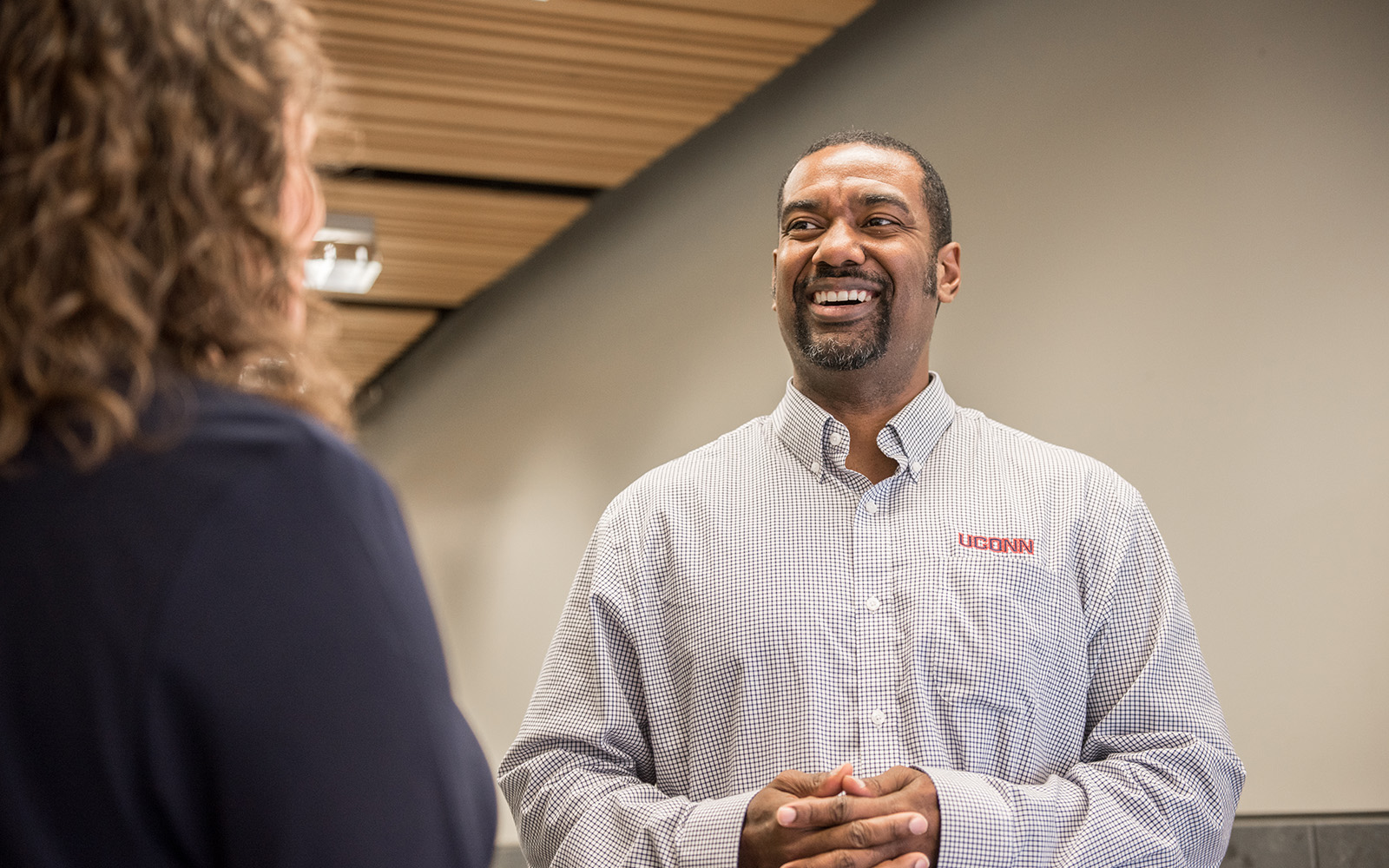UConn Human Rights Conference Gathers Experts to Address Ways to Watch Over Garment Workers
The new shirt that you are wearing is impeccably tailored and bears a prominent designer label, so it must be responsibly sourced.
Right? Continue Reading
The new shirt that you are wearing is impeccably tailored and bears a prominent designer label, so it must be responsibly sourced.
Right? Continue Reading

If you want to increase grocery store sales, offer a discount on beer. And then place a tempting display of salty snacks right next to it—at full price.
That’s some of the well-researched advice that marketing professor Joseph Pancras and his colleagues offer grocery store executives in a newly published article in the Journal of Retailing. Continue Reading
Business Law Assistant Professor Stephen Park was awarded the Distinguished Early Career Faculty Award by the Academy of Legal Studies in Business (ALSB) at the 2017 annual conference in Savannah, Georgia in August. Continue Reading

Enuma Ezeife cringes when she talks about some of the older methods of harvesting bone graft for surgery.
Not only are the procedures excruciating, but they can have numerous unintended consequences, including fracture of a patient’s femur, she said. Continue Reading
The Star Online – Virtual assistants can do far more than find the nearest gas station or get the score of a big game. Now they can help users schedule their next vacation.

An expert in terror analytics, a marketer who worked for NBC, Pepsi and Disney, and a champion of the volunteer income tax program at UConn are among the newest faculty at the School of Business. Continue Reading
University of Arkansas – Many retailers employ discounts to attract customers, but it can be difficult for businesses to know what effect these discounts have on overall store performance, and few studies have analyzed store-level data to know for sure whether this strategy works.
University at Buffalo – For grocery retailers, the tried-and-true strategy of deep discount promotions is a successful one, according to a new study from the University at Buffalo School of Management.
Poets & Quants for Undergrads – While some are talking about diversifying the student and faculty populations at business schools, Cinthia Satornino is doing her part to help drive change. The University of Connecticut marketing professor is the founding co-chair of the Committee for Hispanic Excellence in Business. In 2016 she developed and implemented a first-of-its-kind program that gathered business schools, employers, and policymakers to address ongoing challenges that are faced by Hispanic college students. Satornino and the initiatives she’s driving are products of The PhD Project, a nonprofit focused on increasing the number of African-American, Hispanic-American, and Native American business school professors. Satornino is also a well-known academic in the field of marketing. Her expertise in firms leveraging their social structures to increase productivity has resulted in an Emerging Scholar status from given to her by Diverse Magazine.
American Business Law Journal, Vol. 54, No. 1, 2017
Puerto Rico, as a quasi-sovereign U.S. territory, is confronting a debt crisis of unparalleled legal complexity. This article analyzes the collective action problems in sovereign debt finance in the context of Puerto Rico’s quasi-sovereign debt dilemma. We examine how sovereign debtors engage with their private creditors in the absence of a formal bankruptcy regime and show how various legal incentives, imperatives, and constraints shape the degree and form of creditor engagement. Drawing on this conceptual framework, this article analyzes the role of these factors in the market-based debt restructuring by the Puerto Rico Electric Power Authority (PREPA) and hypothesizes how these factors may influence the statutory restructuring process underway under the Puerto Rico Oversight, Management, and Economic Stability Act (PROMESA). Despite the idiosyncratic aspects of Puerto Rico’s debt crisis, the potential pathways for debtor-creditor cooperation in Puerto Rico provide valuable insights on the various ways that law influences debtor-creditor cooperation in sovereign debt finance beyond the enforcement of state-based public regulation and contract-based private legal commitments. Full article.